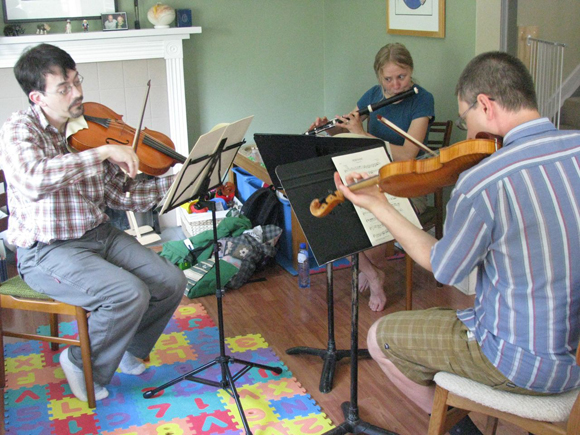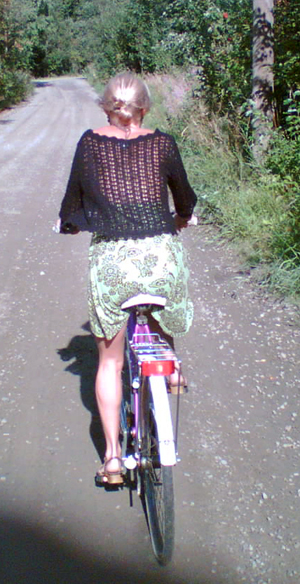At the Church of St John the Divine, where my husband is the organist, we are running a series of Lenten Concerts on Sundays throughout March. These events are short recitals (approximately 45 mins) and the entry is by donation. We hope these to be the kind of events that bring in people also other than the most regular concert-goers. The length or cost should not be an issue here – even if you are not sure whether you like it or not, it is not going to be a big investment of your time or means. Plus St John’s Church is a beautiful place, and outside service times the church doors are shut, so these concerts are also good opportunities for people to walk in from the street, and enjoy the church with some lovely music for three quarters of an hour, with a cup of coffee or tea, which is also provided in these concerts.
The first concert of the series this year was a somewhat unconventional combination: just two baroque flutes and no other instruments. I played this programme with my Argentinian colleague Carolina Perez Bergliaffa from Vancouver. There is so much wonderful repertoire out there for two flutes, and playing duets with someone on the same instrument as yours always feels very special and intimate. I also ended up talking to the audience quite a bit between the pieces, to give them some background on how baroque flute was newly-discovered and a popular instrument in the 18th century, and how playing flute duets was one way of re-creating your favourite music at home, especially since no record players or iPods were available back then.
We got an audience of quite a mixed crowd – from devoted early music lovers to some people who just happened to walk past the church and see the sign about the concert outside–but all the feed-back we heard was very positive. The comments made me think that perhaps there is a lot more room for alternative concert models–perhaps concerts that are shorter and more intimate in setting.
You can find out more about St John’s Lenten Concert Series here, -the next one I am playing in is on March 25th, a programme of Baroque Arias for soprano, flute and continuo, including the gorgeous “Aus Liebe” from Bach’s St Matthew Passion, and “Ich folge dir” from St John Passion. And on April 1st 7.30pm the series culminates with a full evening concert with the Victoria Baroque Players, “Bach on Palm Sunday”.


